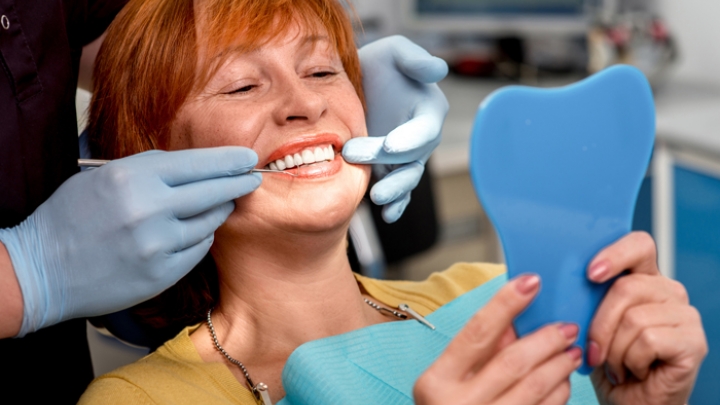(RxWiki News) Learn how to prevent dental erosion with seven simple steps.
Even if you take steps to prevent dental cavities, you’re still at risk for dental erosion. This growing problem now affects as many as one in five Americans.
- Dental erosion is the acidic dissolution of teeth.
- It starts with the softening (de-mineralization) of the enamel and progressing to actual structural loss.
- It’s caused by acids in food and beverages as well as by regurgitated stomach acid from reflux disease.
- Overbrushing and abrasive toothpaste can worsen the damage.
Why the rise in dental erosion?
Largely because Americans drink more acidic beverages and have become heavier. Obesity increases the risk of acid reflux disease. Many medications reduce saliva flow, making teeth more vulnerable to acid. And ironically, in our zeal to clean and polish our teeth, many of us overdo it and thus abrade them.
Seven ways to prevent dental erosion
If you want to prevent erosion or know you already have it, take these steps:
- Limit acidic beverages. Such as:
- Soda (including diet ones)
- Energy drinks
- Sports drinks
- Citrus juices
- Wine
- Limit acidic foods (or at least eat them with other foods). Such as:
- Oranges
- Lemons
- Grapefruit
- Sour candies
- Rinse with water after consuming acidic foods or beverages, but don’t brush for at least 30 minutes.
- Eat dairy products. Their calcium helps reduce the damaging effects of acids; their casein enhances remineralization.
- Chew sugarless gum to increase saliva flow, which helps wash away acids.
- Use a soft-bristled toothbrush and brush not too forcefully and for two minutes, but not longer.
- Use a less abrasive toothpaste.
- Check the Relative Dentin Abrasivity (RDA) of your toothpaste.
- These are RDA values for common toothpaste: 0-70=low abrasive, 70-100=medium abrasive, 100-150=highly abrasive, 150-250=regarded as harmful and recommended to limit use.
- Use a toothpaste that has an RDA less than 70 for regular use.
- Limit using toothpaste with an RDA above 70 for short-term use.

